The Marketing Funnel is DEAD
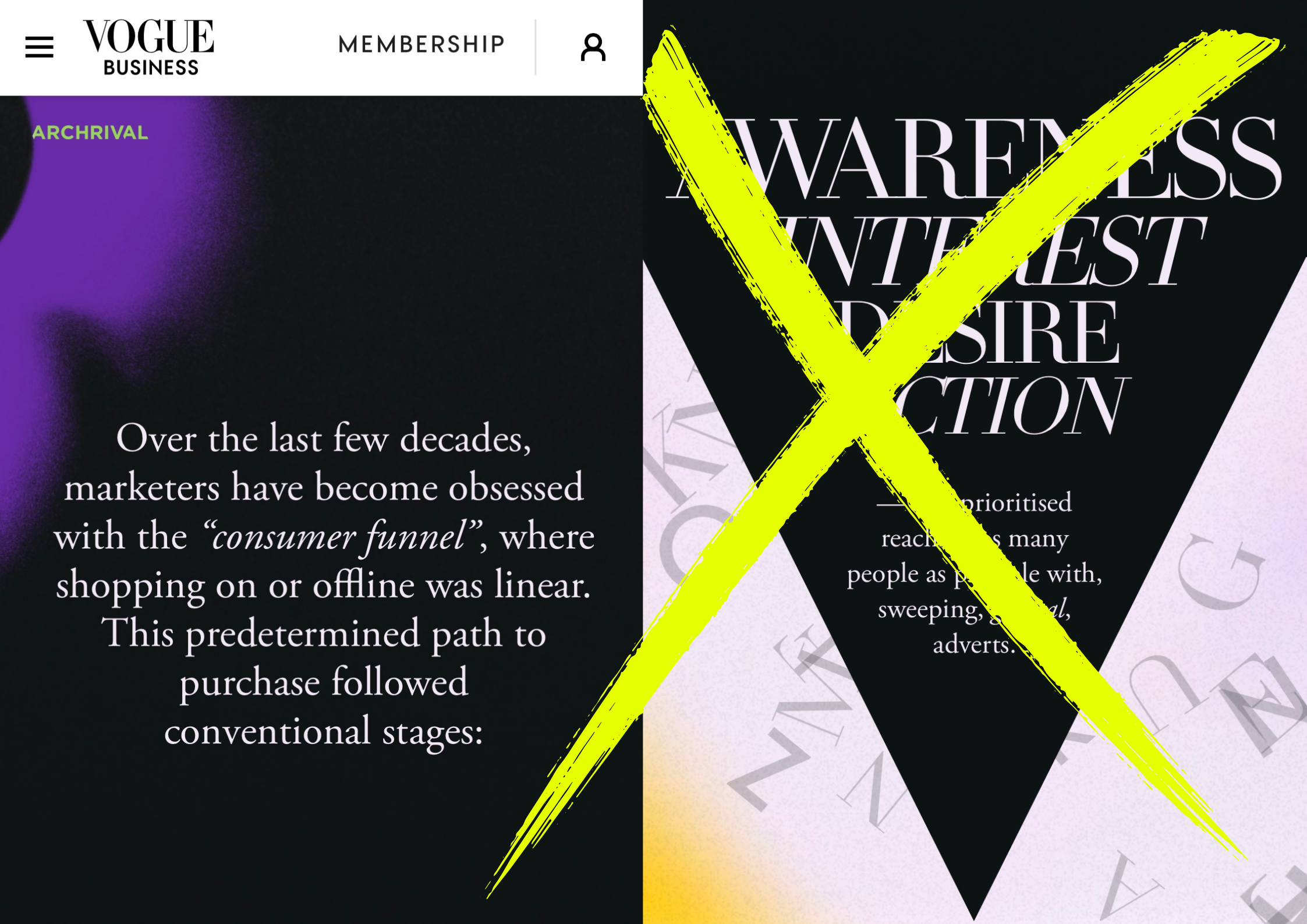
In March 2024, Vogue Business boldly stated that "the Marketing Funnel, as we know it, is dead".
In a recent declaration by Vogue Business, the traditional marketing funnel was pronounced dead, a proclamation echoing through the corridors of digital marketing.
The landscape of brand engagement is reportedly undergoing a seismic shift, primarily driven by Generation Z's unique consumer behavior.
So, what does this really mean to brands and businesses?
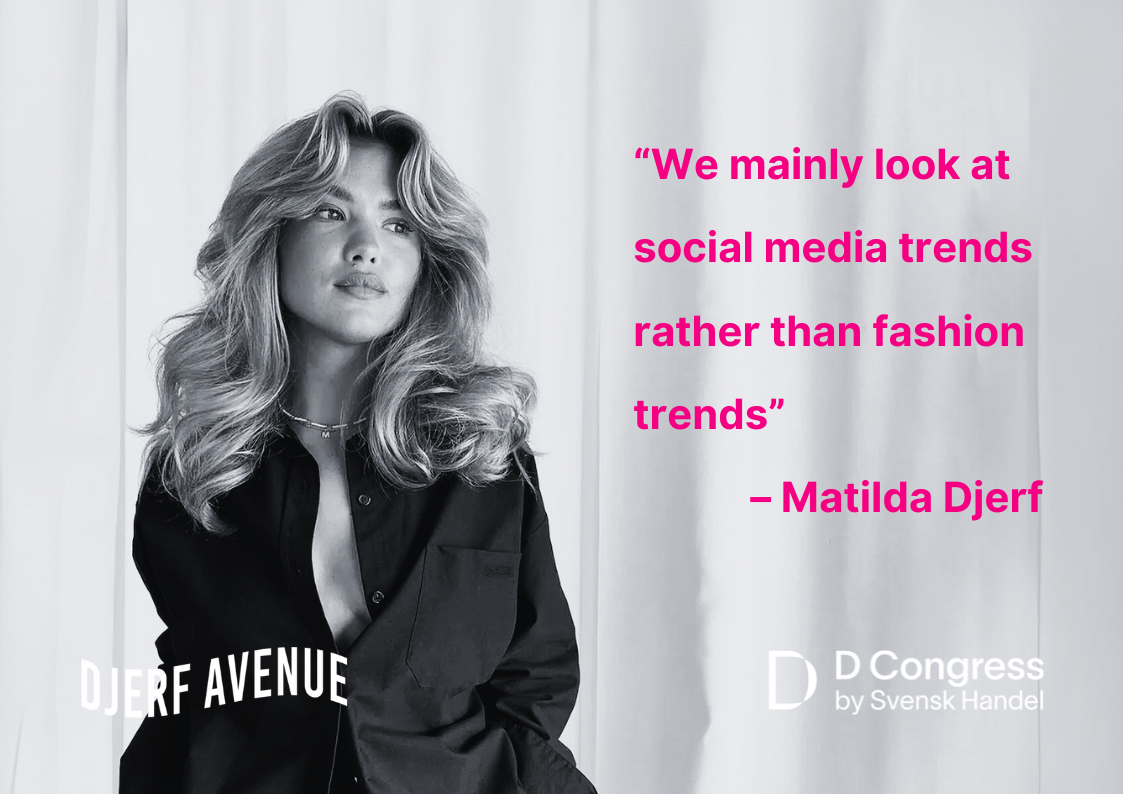
The Death of the Marketing Funnel: What It Means for Brands in the Age of Gen Z
Gen Z only trusts themselves
According to Vogue Business, Gen Z trusts algorithms to serve them what they want through social media, such as TikTok, Instagram Reels, and YouTube Shorts.
Generation Z, individuals born between 1997 and 2012, is coming of age in a world where algorithms dominate content delivery. Platforms like TikTok, Instagram Reels, and YouTube Shorts are not just entertainment sources but pivotal in this demographic's decision-making process.
Vogue Business highlights that these young consumers trust these algorithms to deliver exactly what they want, sidelining traditional advertising strategies that guide consumers from awareness to purchase.
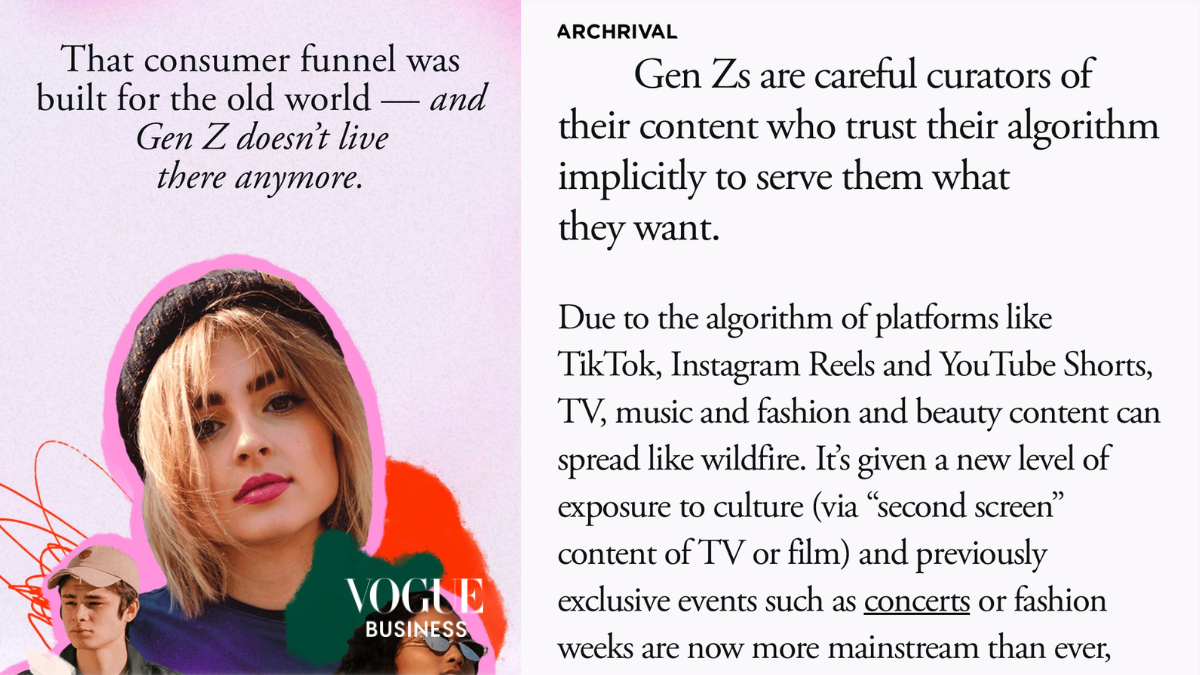
Brand loyalty through all touchpoints
Gen Z expects brands to win them over in new and innovative ways repeatedly, reinventing themselves as brands and building brand loyalty for the long haul.
The implications for brands are profound. The once linear journey of attracting customers and leading them through a sales process until a purchase is made is becoming obsolete.
Instead, Gen Z demands constant innovation from brands, expecting them to reinvent themselves continually and engage in creative and genuine ways.
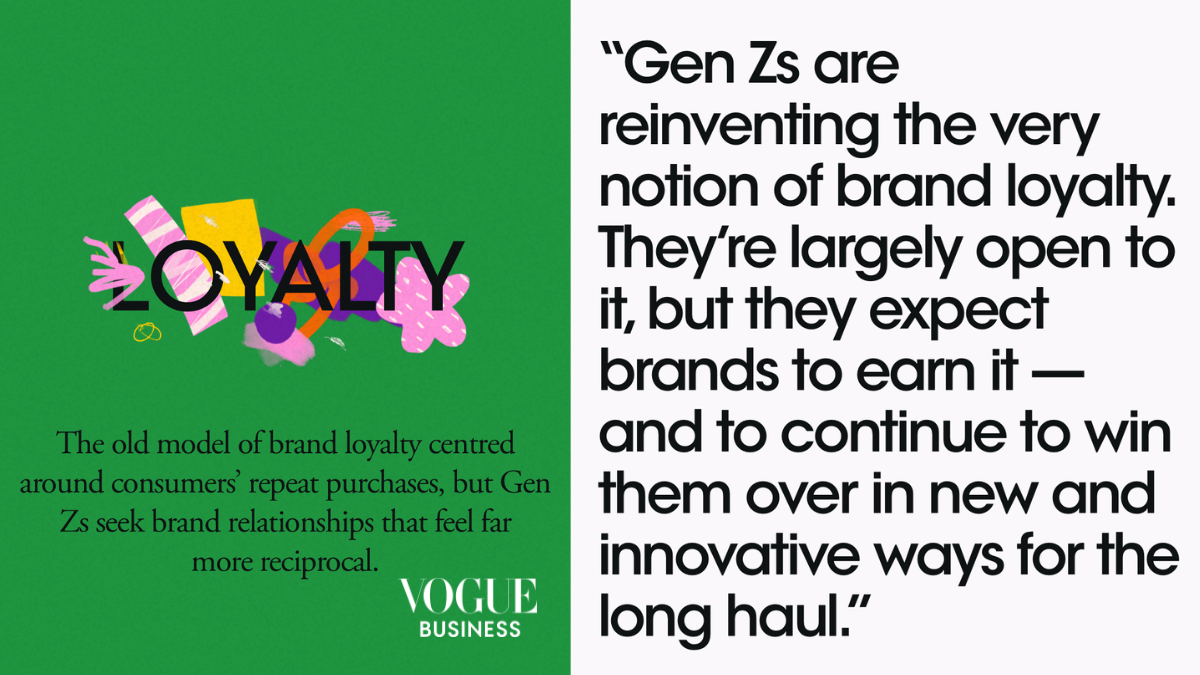
Supporting research through transparency is key
Interestingly, Gen Zs also prefer to research brands and products themselves, using multiple platforms to do so.
Gen Z places a strong emphasis on independent research. Straightforward promotions or celebrity endorsements do not easily sway them as they did previous generations. Instead, they use multiple platforms to thoroughly research a brand or product before forming an opinion.
As many as 70 percent of Gen Z consumers and 69 percent of millennials need to conduct their own investigations before trusting a brand, underscoring a skepticism of traditional marketing messages.
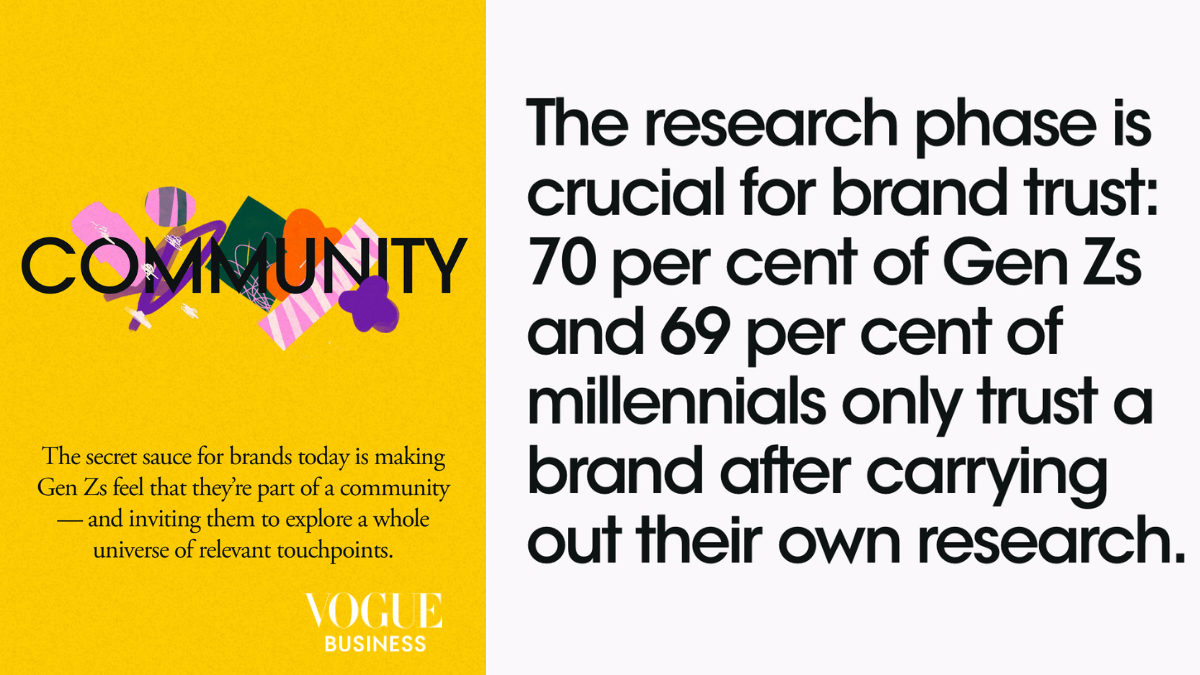
What does this mean?
This shift means building brand loyalty is more complex for businesses and requires more than just repetitive exposure. Engagement must be dynamic, focusing on creating authentic and memorable interactions.
Brands that succeed in doing so will not only capture the attention of this critical demographic but will also cultivate a loyal customer base that values trust and transparency above all.
This evolving landscape challenges marketers to rethink strategies and possibly innovate in their approach to engaging with Gen Z's digital natives. The key will be understanding and leveraging the platforms where these consumers spend most of their time and ensuring that every interaction counts toward building a lasting relationship.
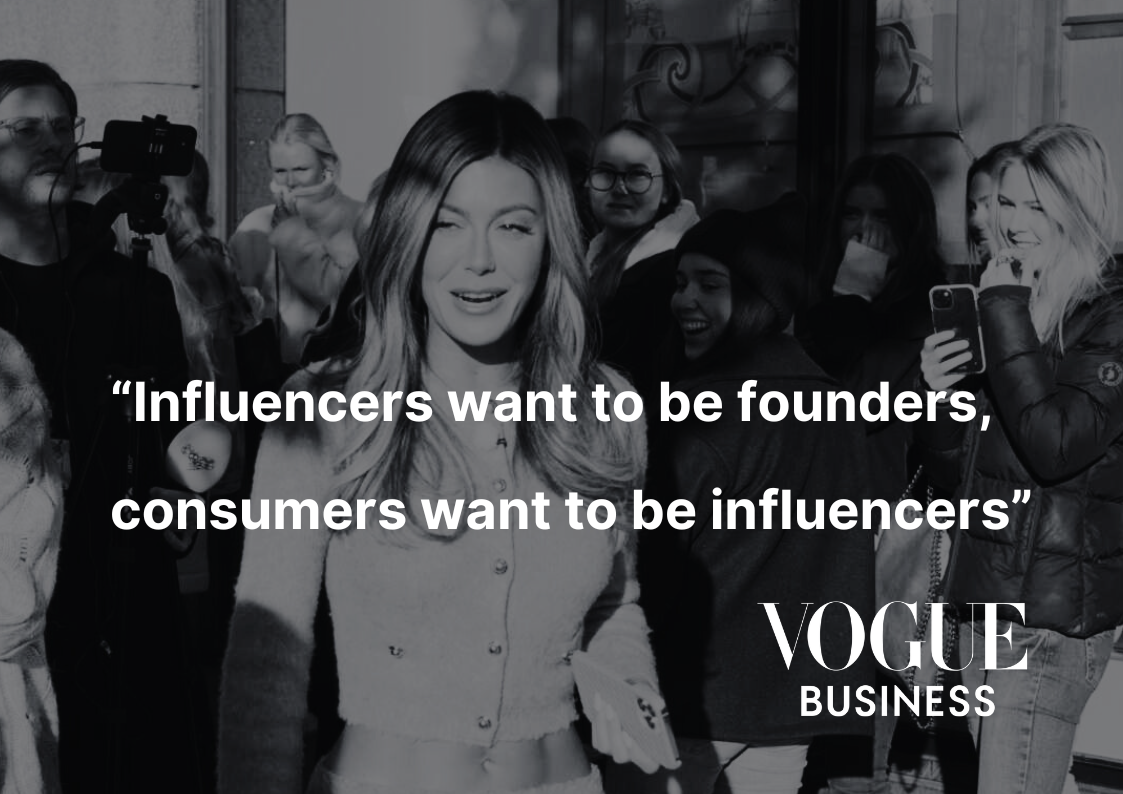
What are your thoughts?
What is the future of building brands?
Would you like support in the new marketing funnel through Brand Marketing Strategy? Contact me at maja(@)hurtigh.se, and let's talk about brands.

